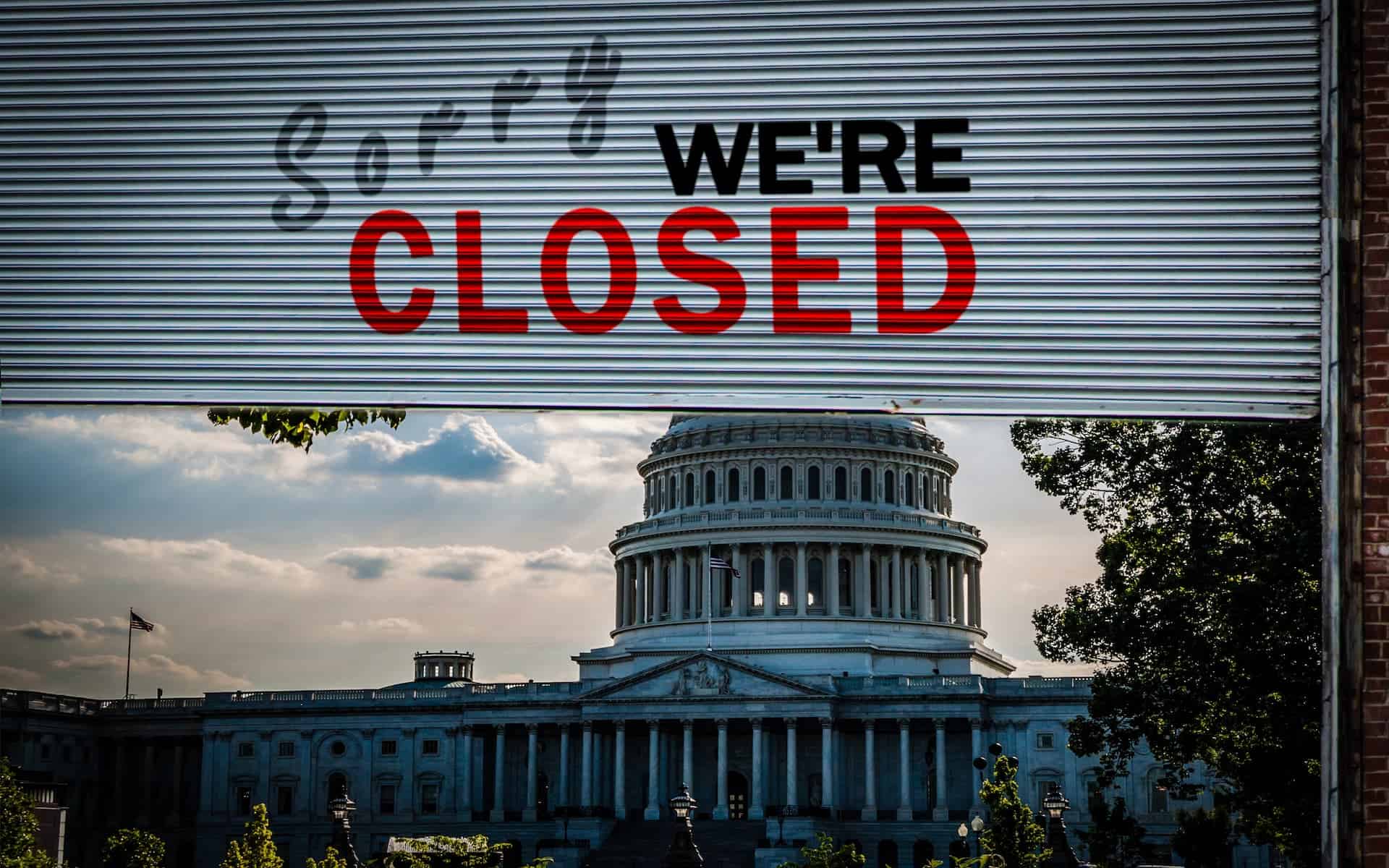Nevada’s Federal Worker Eviction Protections Explained
When the federal government shuts down, understanding the legal implications for Nevada landlords becomes critical. At Next Level Property Management, we stay current on these regulations and work closely with legal counsel to ensure our clients remain compliant, because protecting property owners from costly legal mistakes requires proactive expertise, not reactive scrambling.
If you manage multifamily properties in Nevada with federal employees as residents, here’s what you need to know about eviction protections during a government shutdown. This isn’t legal advice, it’s practical guidance from property managers who understand how legislation impacts rental operations.
The Federal Worker Protection Framework: Three Critical Rules
Nevada Revised Statutes provide specific protections for federal workers during government shutdowns. Understanding these protections isn’t optional, it’s legally required for anyone managing rental property in Nevada.
Protection #1: Nonpayment of Rent Evictions Are Suspended
Legal Authority: NRS 118A.310
What It Means: During a federal government shutdown, landlords cannot enforce lease provisions requiring rent payment by specific dates for federal workers. This effectively prohibits eviction proceedings for nonpayment of rent against federal employees during the shutdown period.
The Extended Timeline: Federal workers have up to 30 days after the shutdown ends to pay rent that came due during the shutdown period. This means if a shutdown lasts 15 days, the federal worker has 45 total days from the original rent due date to pay without facing eviction.
Operational Impact: A federal worker whose rent was due January 5th during an active shutdown cannot be evicted for nonpayment until at least 30 days after the shutdown officially ends, potentially 60+ days from the original due date depending on shutdown duration.
Protection #2: No-Cause Evictions Can Be Delayed
Legal Authority: NRS 40.251
What It Means: Federal workers facing no-cause evictions (also called “no-cause termination,” “holdover,” or “possession after expiration of term”) can request to remain in the property during the shutdown plus 30 additional days after the shutdown ends.
The Requirements: The federal worker must:
- Submit a written request for the extension
- Provide proof of federal employment
- Make the request before the eviction proceeds
Operational Impact: If you’ve already initiated a no-cause eviction against a resident who turns out to be a federal employee during a shutdown, that eviction timeline extends by the shutdown duration plus 30 days. A 21-day shutdown could add 51 days to your eviction timeline.
Protection #3: Lease Violation Evictions May Be Delayed
Legal Authority: NRS 40.251 (subject to interpretation)
What It Means: Federal workers facing eviction for lease violations (cure-or-quit notices) may be able to request the same extensions as no-cause evictions, though the statute’s language creates some ambiguity in interpretation.
The Uncertainty: Legal professionals differ on whether these protections apply equally to all lease violation scenarios. The statute’s placement and language intent aren’t completely clear, which means this is where amateur property managers create expensive legal exposure.
Our Approach: We treat lease violation evictions against federal workers during shutdowns with heightened scrutiny and immediate legal consultation. The potential cost of getting this wrong far exceeds the cost of getting expert guidance.
What’s NOT Protected: Critical Exceptions
Nevada law does NOT extend shutdown protections to evictions filed under NRS 40.2514, which covers:
- Nuisance behaviors
- Property waste or damage
- Unauthorized assignment or subletting
- Illegal activities on the premises
- Other serious lease violations beyond simple nonpayment or holdover scenarios
What This Means Operationally: If a federal worker is engaging in criminal activity, creating serious disturbances, or causing property damage, standard eviction procedures remain available regardless of shutdown status. The protections apply to financial hardship situations, not serious misconduct.
The Landlord Hardship Provision: When Protections Can Be Challenged
Legal Authority: NRS 118A.315
If a federal government shutdown extends beyond 30 days, Nevada law provides landlords with a potential relief mechanism. Property owners can petition the court to remove these protections based on undue hardship.
Factors Courts Consider:
- Existing mortgage obligations and foreclosure risk
- Property operating expenses and cash flow impact
- Other financial responsibilities and obligations
- Overall financial hardship created by the extended non-payment period
Reality Check: Courts have broad discretion in evaluating hardship claims. Simply losing 30-60 days of rent isn’t automatically considered “undue hardship”, you need to demonstrate genuine financial jeopardy. This is another area where amateur property management creates problems by filing premature or poorly documented hardship petitions.
Operational Protocols: How Professional Managers Handle Shutdown Evictions
At Next Level, we don’t wait for residents to claim federal employment status. We implement proactive protocols that protect our clients from compliance violations:
1. Upfront Identification
We document federal employment status during the leasing process. When we know a resident works for a federal agency, we flag the account for shutdown monitoring before issues arise.
2. Immediate Verification Requirements
When any resident claims federal worker status during an eviction proceeding, we require documentation within 48 hours:
- Federal employment verification letter
- Recent pay stub showing federal employer
- Federal agency ID badge
- Official correspondence confirming employment status
Why This Matters: The statute requires proof of federal employment to invoke protections. We don’t accept verbal claims, we demand documentation that would hold up in court.
3. Legal Consultation Triggers
We immediately consult with legal counsel when:
- A federal worker is subject to any eviction during a shutdown
- Shutdown duration approaches 30 days (triggering hardship petition consideration)
- Any ambiguity exists regarding protection applicability
4. Documented Communication
Every communication with federal workers regarding shutdown protections is documented, timestamped, and stored in compliance files. If an eviction proceeds to court, we have complete audit trails demonstrating good-faith compliance efforts.
5. Financial Impact Analysis
For clients with multiple federal worker residents, we model cash flow impacts under various shutdown duration scenarios. This allows owners to make informed decisions about hardship petitions and understand their financial exposure before it becomes critical.
What Property Owners Should Do Right Now
If you’re self-managing or using inexperienced property managers:
- Identify federal workers in your portfolio immediately. Don’t wait until you’re in the middle of an eviction to discover you have federal employees.
- Review any active eviction proceedings. If you have evictions in process, verify resident employment status immediately. Proceeding with an eviction against a federal worker during a shutdown creates legal liability.
- Update your eviction procedures. Your standard eviction protocols need shutdown-specific modifications. This isn’t something you figure out during a crisis.
- Document everything. If you receive claims of federal employment, require proof and document all communications regarding shutdown protections.
- Consult legal counsel before proceeding. The cost of a legal consultation is negligible compared to the cost of an improperly executed eviction against a protected federal worker.
If you’re using professional property management:
Verify that your property manager has specific protocols for handling federal worker evictions during shutdowns.
The Broader Context: Why This Matters for Multifamily Owners
Federal government shutdowns have become increasingly common. Since 2013, there have been multiple shutdown events, with durations ranging from single days to 35 days (the longest in U.S. history, from December 2018 to January 2019).
For multifamily property owners in Nevada, this creates ongoing operational risk:
- Northern Nevada has significant federal employment through Tahoe National Forest, federal agencies in Reno, and military installations
- Southern Nevada has substantial federal presence via Nellis Air Force Base, federal offices in Las Vegas, and various federal agencies
- Each shutdown creates potential 30-60 day revenue disruptions for properties with federal worker residents
Properties with higher concentrations of federal workers face elevated risk during shutdowns. Professional property managers should be analyzing your resident base, modeling shutdown impact scenarios, and developing mitigation strategies before the next shutdown occurs.
The Bottom Line
Federal government shutdowns create complex legal obligations for Nevada landlords. These protections aren’t suggestions, they’re legally binding requirements that carry serious consequences for non-compliance.
If you’re managing multifamily properties in Nevada, you need operational systems that:
- Identify federal workers before eviction issues arise.
- Implement compliant procedures during shutdown periods.
- Document all communications and decisions.
- Know when to escalate to legal counsel.
- Protect owners from expensive compliance failures.
Questions about how federal worker protections impact your Nevada multifamily property? Contact Next Level Property Management at (775) 502-8287 or hello@nextlevelpm.co. We deliver the sophisticated management expertise that protects your asset and maximizes your returns, even during federal government disruptions.
This article provides general information about Nevada eviction law and is not legal advice. Property owners should consult with qualified legal counsel for specific situations.

